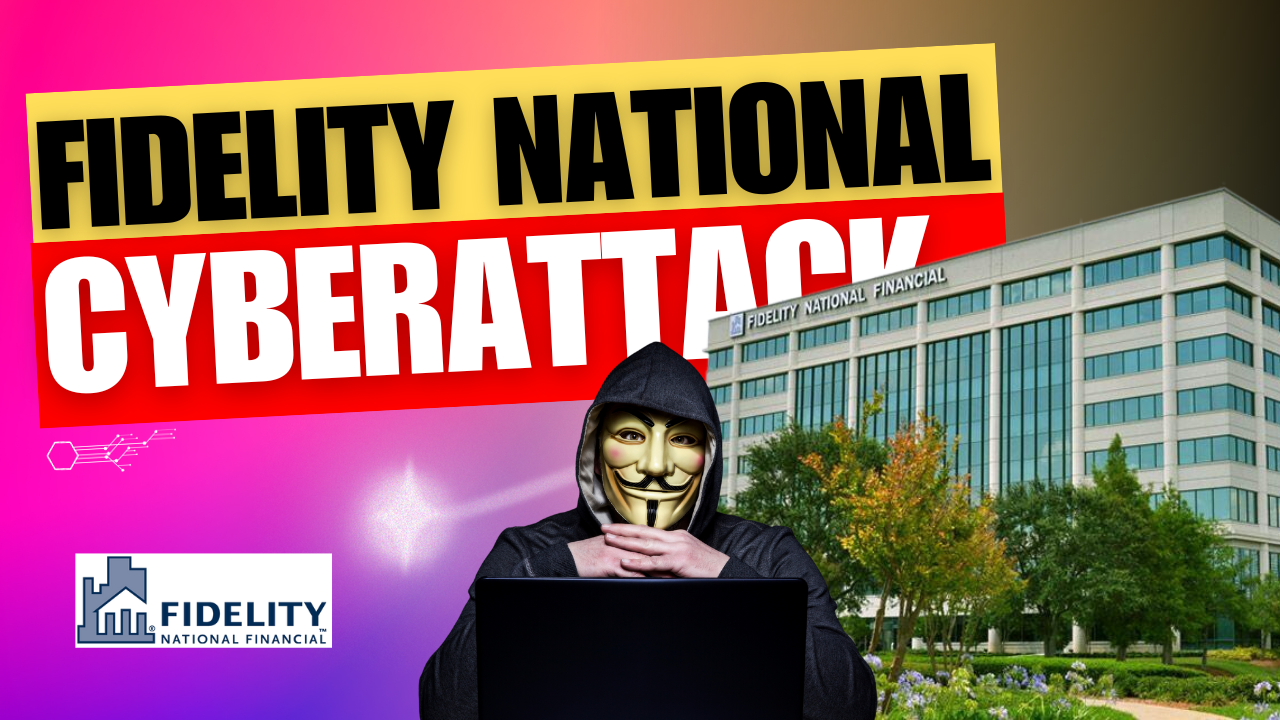Today, I want to shed light on a recent cyber attack that hit a Fortune 500 Real Estate title insurance and settlement services company. It's crucial to understand what happened and who was involved, as it serves as a stark reminder of the vulnerabilities even large companies face in the ever-evolving landscape of cyber threats.
Before we delve into the details, please take a moment to like this post, subscribe to our channel, and hit the notification bell to stay updated on valuable insights like this.
Fidelity National Financial, a prominent player in the real estate sector, recently faced a cybersecurity incident that compelled them to shut down their network to contain the breach. This unfortunate event has caused significant disruptions in title insurance, escrow, and mortgage transactions across the United States. The implications are far-reaching, potentially affecting real estate transactions, especially as we approach the holiday season.
This incident highlights the increasing frequency of cyber attacks in the real estate industry. Cybercriminals seem to favor this sector, and it's a trend we've observed over the past few months. The breach underscores the vulnerability of even well-established companies to cyber threats.
So, why are we aware of this cyber attack? Fidelity National Financial is a publicly traded company, and as such, they are bound by certain rules laid out by the SEC. Publicly traded companies are now required to promptly disclose cyber events. Fidelity National Financial complied with this requirement, bringing to light the incident swiftly. The significance here is that we are now getting information about such events much quicker, allowing us to take necessary steps to defend against similar cyber threats.
Fidelity National Financial is actively investigating the incident with top cybersecurity experts and has informed law enforcement. However, the impact on their business operations, especially in title insurance and mortgage transactions, is undeniable. The attackers gained access using stolen credentials, resulting in operational lock-ups.
This incident serves as a wake-up call for businesses, emphasizing the critical importance of robust cybersecurity measures, particularly in the real estate sector. Let's discuss some essential steps that businesses, including yours, should consider to enhance cybersecurity.
- Regularly Updated Security Protocols: Ensure that your network and systems are updated and free of vulnerabilities. Regularly update software from vendors like Microsoft and Apple, including third-party applications like browsers and Office tools.
- Employee Training: Invest in security awareness training for your employees. A well-trained workforce is your first line of defense against cyber threats. Train them to recognize potential risks and understand what actions to take if they suspect a security issue.
- Multi-Factor Authentication (MFA): While not foolproof, MFA is a critical component of your cybersecurity strategy. Implement multi-layered security measures to bolster protection against evolving cyber threats.
- Regular Backups and Testing: Maintain regular backups of your data and, most importantly, regularly test those backups. Knowing that your data can be restored is crucial for a swift recovery in the event of a cyber attack.
- Incident Response Plan: Develop a comprehensive incident response plan. Conduct drills and simulations to ensure your team knows how to respond effectively in the event of a cybersecurity incident. Time is of the essence, and preparedness can make all the difference.
The recent cyber attack on Fidelity National Financial serves as a stark reminder that cybersecurity is a shared responsibility. By adopting these practices and staying vigilant, you can better protect your business and contribute to the collective defense against cyber threats. If you need assistance with any of these measures, there are resources available to help. Stay safe, and I look forward to engaging with you in the comments.



